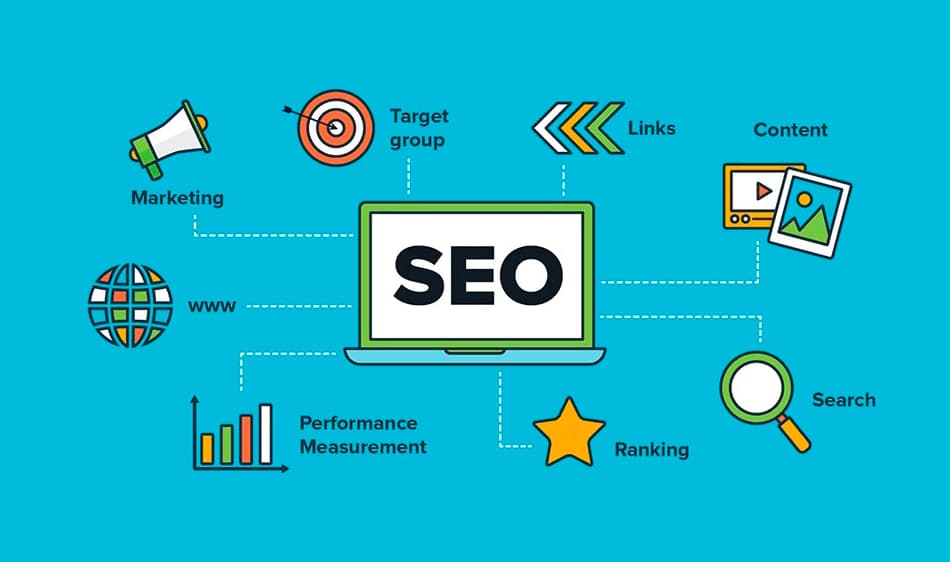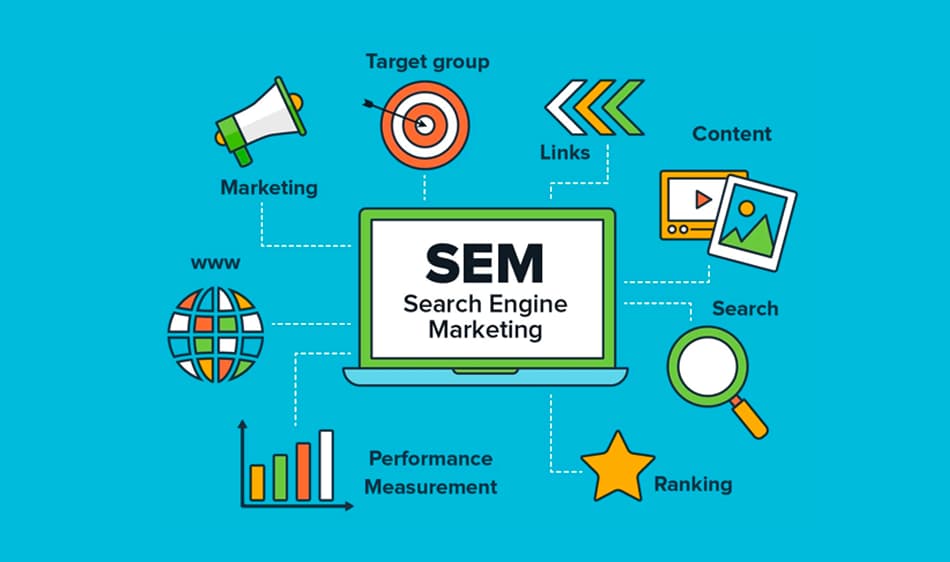SEO vs SEM: Are SEO & SEM Complementary?

SEO and SEM are often discussed together when it comes to online marketing strategies.
I often get asked about the relationship between SEO and SEM and how exactly both digital marketing activities complement one another.
In this article, we will discuss the difference between Search Engine Optimization & Search Engine Marketing and how do the two relate and work together?
What is SEO & SEM?
- What is SEO & SEM?
- What is the relationship between SEO and SEM?
- How are SEO and SEM similar to one another?
- What are the differences between SEO and SEM?
- How do SEO and SEM complement each other?
- Need SEO or SEM advice?
Google’s search results are divided into organic search results and paid results. Both can be very effective marketing channels for online businesses.
What is Search Engine Optimisation?
Search engine optimization is currently one of the most important factors for a business to consider when ranking on search engines.

It refers to how well your website will be crawled by Google where their crawler assesses various aspects of your website and online.
This includes factors such as keywords and user experience that attract organic traffic from those who are looking up specific information about what you offer online.
What is Search Engine Marketing?
Search Engine Marketing (SEM) is a term relating to other forms of online marketing and paid search advertising. This can include things like Google AdWords, which refers to businesses paying to be at the top of search engine results pages.

What is the relationship between SEO and SEM?
When we talk about the difference between SEO and SEM, it’s important to remember that they both focus on search engine advertising.
SEO can sometimes relate to paid advertising and there is an element of optimisation required in order to show your paid adverts in the right places. However, SEM refers strictly relating to paid mediums whilst SEO is generally a term used when optimising for organic results in Google.
Both practices are designed to help generate traffic that will ultimately convert and whether you are looking for a sale or to increase awareness of a particular page, attracting high-quality traffic is ultimately the goal of both SEO and SEM.
How are SEO and SEM similar to one another?
There is a definite crossover when it comes to SEO and SEM. Whilst both relate to slightly different parts of online marketing, understanding the similarities is very important.
Some of the main similarities include:
Increasing a website’s traffic
One of the most important aspects of having a successful business is being visible. The goal for both SEO and SEM strategies, then, is to make sure your brand shows up when users search their industry or offerings on Google Results Pages.
Both require a lot of keyword research
Understanding the search intent by phrases is crucial to understanding where to spend money on advertising and organic ranking positioning. Keyword research will help you understand whether a phrase is relating to a user looking for something to buy or are at the research phase trying to look for information on a particular query.
Competitor research
Both SEO and SEM are heavily reliant on competitor analysis to understand what it is your competition is doing. Whether this is their paid or organic strategy, you need to know what the competition in your marketplace is doing.
What are the differences between SEO and SEM?
The main difference between SEO and SEM is that one focuses on organic traffic, the other aims to increase visibility through paid advertisements.
Whilst SEO is focused mainly on optimising your website for Google when it crawls your website, SEM generally refers to the practices involved with optimising paid campaigns.
SEO is very much focused on factors such as:
- User experience – Creating a good user experience through things like fast loading times and ease of use will ensure that users have a good experience with your website.
- Content quality – Having great quality content is a sure way to get you ranked high up in search engine rankings. The better and more focused your content is around what it is you are offering, the more engagement customers have with your site and the easier Google can understand what it is you are offering.
- Keyword optimisation – Ensuring you hit the right volume of keywords and not stuffing your content with keywords that you look to rank for is another big part of SEO.
- Page title optimisation – Creating engaging page titles that describe what your page is offering whilst hitting keywords around a topic is something else mainly associated with SEO.
- Backlink quality – Off-page SEO refers to things like backlinks that are not directly involved with your website but can have a direct impact on your search engine performance.
Whilst things like user experience and content quality are still important parts of SEM, search engine marketing is generally in relation to practices such as:
- Geo-targeting on PPC campaigns – creating campaigns that will get the right kind of eyes on your adverts depending on the user’s location
- Creating high converting ad copy – using language that will entice potential website visitors to click on your adverts.
- Optimising your ad spend – optimising the amount you spend on an advert depending on how much it costs for your advert to show for a particular phrase on the search results page.
- Understanding user intent – how do particular search queries impact how well an advert converts into a sale. Are you providing information or providing a transactional service?
How do SEO and SEM complement each other?
There is overlap in terms of what you need to do in order to perform in both of these aspects. Good on-page design and user experience for example will not only help your organic positions but will also help convert better if you were to run a paid advertising campaign too.
Having an understanding of SEM strategies as well as SEO will ensure that you are creating a website that enhances user experience and makes their interaction with your business a positive one.
Need SEO or SEM advice?
Understanding the relationship between SEO and SEM is vital to your online marketing efforts. Both organic and paid avenues are a crucial part of any online businesses strategy.
If you need any support on SEM or SEO, feel free to get in touch and I will be more than happy to provide advice or guidance on both subjects.
